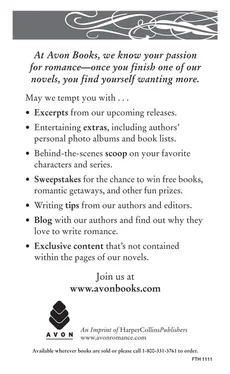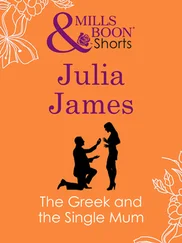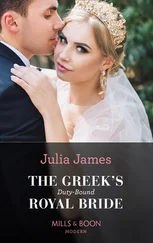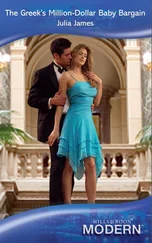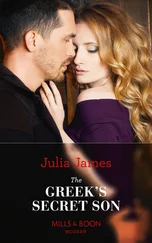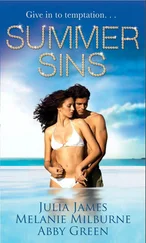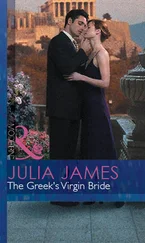Julia James - The Lady Most Willing
Здесь есть возможность читать онлайн «Julia James - The Lady Most Willing» весь текст электронной книги совершенно бесплатно (целиком полную версию без сокращений). В некоторых случаях можно слушать аудио, скачать через торрент в формате fb2 и присутствует краткое содержание. Жанр: Старинная литература, на английском языке. Описание произведения, (предисловие) а так же отзывы посетителей доступны на портале библиотеки ЛибКат.
- Название:The Lady Most Willing
- Автор:
- Жанр:
- Год:неизвестен
- ISBN:нет данных
- Рейтинг книги:4 / 5. Голосов: 1
-
Избранное:Добавить в избранное
- Отзывы:
-
Ваша оценка:
- 80
- 1
- 2
- 3
- 4
- 5
The Lady Most Willing: краткое содержание, описание и аннотация
Предлагаем к чтению аннотацию, описание, краткое содержание или предисловие (зависит от того, что написал сам автор книги «The Lady Most Willing»). Если вы не нашли необходимую информацию о книге — напишите в комментариях, мы постараемся отыскать её.
The Lady Most Willing — читать онлайн бесплатно полную книгу (весь текст) целиком
Ниже представлен текст книги, разбитый по страницам. Система сохранения места последней прочитанной страницы, позволяет с удобством читать онлайн бесплатно книгу «The Lady Most Willing», без необходимости каждый раз заново искать на чём Вы остановились. Поставьте закладку, и сможете в любой момент перейти на страницу, на которой закончили чтение.
Интервал:
Закладка:
“Brought you buttered crumpets,” he said with a grunt. “And mulled cider.” He walked over to the fire and put the tray down on a hassock. Then he set a lidded silver pitcher on the floor close to the hearth. “Leave it here so it’ll stay hot,” he ordered.
“Thank you,” Fiona said. “We will.”
He straightened, caught sight of Byron, and scowled. “Does the laird know that you’re in here?”
“No, and you’ll not tell him.” The words were delivered with a hard tone that seemed to make an impression on the man.
“Wooing!” he said, and turned and spat into the fire. “Time was a man dinna have to do this kind of wooing. Groveling for money, more like.” His gaze moved to Fiona. “Begging from women who has the money. It’s unnatural.” He collected her cold teapot and headed for the door.
Byron strode after him. “You didn’t see me here,” he stated.
The old Scotsman snorted and stomped off.
Oddly enough, that snort made Byron smile. Fiona decided that she didn’t understand him. He was unnerved by Marilla’s advances, but amused by a retainer’s flat rudeness. As she watched, he not only closed the door but turned the key.
“Is that truly necessary?” Fiona inquired.
“If you’re asking whether I’d prefer to avoid the experience of having another strange breast fall into my hand like an overripe plum, the answer is yes.”
Perhaps she should say something to defend her sister. But an overripe plum didn’t sound very nice.
“What if it weren’t a strange breast?” she asked, unable to resist.
“I am not familiar with any woman’s breasts,” Byron replied, walking back to the sofa. “At the moment the world is full of strange breasts. Though I must say, this is a very improper subject.”
“You do need to marry,” Fiona pointed out, struck by his observation. “You should be out there groveling at someone’s feet—Lady Cecily’s for example—in the hopes of gaining an intimate acquaintance with body parts other than her feet.”
“There are better things a man could do with his time than grovel at a woman’s feet,” Byron remarked.
With a start, Fiona realized that he was looking at her as he sat back down. With a lazy smile.
A dangerous smile.
For a moment her heart hiccupped, but she got hold of herself. “Right,” she said briskly. “You may have one of my crumpets, and then I would ask to be left in peace. I don’t have much left to read in this novel, and I’m keen to finish it.”
“If you force me to leave now, I shall starve,” he complained, picking up a linen napkin from the tray.
“Only because you’re afraid to go into the drawing room for tea.”
He reached a powerful hand toward the crumpets. Devil take the man, his limbs were probably as beautifully knit as his fingers. “More cautious than afraid,” he said. “Have you noticed how much worse the storm has grown today?”
She didn’t even glance at the windows. She’d lived in the Highlands all her life, and she knew the howl of the wind. “It will worsen through tomorrow evening, I should guess. You are now in the Highlands proper, Lord Oakley.”
“My name is Byron,” he said, for the third or fourth time, as he handed her the napkin and a crumpet.
The incongruity of this man being named Byron flashed across her mind. Byron was a poet, a man who wrote of love, midnight, and a woman’s smile. The earl, though, was of a different character altogether.
He obviously read her expression. “I have no connection whatsoever to that paltry rhymester Lord Byron. The name has been in my family for generations.”
“You’re not a poet, then?” She smiled at him, acknowledging that the mere notion was ridiculous. In fact, his christening had to be some sort of jest on destiny’s part. This Byron was the least poetic man she’d ever met.
On the other hand, his person could easily be the subject of poetry. From the top of his ice-blond head to the toes of his perfectly shined boots, he was flawless. Even in the width of his shoulders and the clear blue of his eyes.
He had finished his crumpet, so he picked up the pitcher and poured hot cider into her empty teacup.
“Brandied cider,” she said happily. “What a perfect drink for an afternoon such as this.”
“It’s not afternoon; it must be going on six in the evening,” Byron said, pouring himself a mug. “At any rate, I could write poetry if I wished.” Stubbornness echoed in every word.
She eyed him. “Are you this competitive in every aspect of your life?”
“It is not competitive to understand that poetry presents very little challenge. A rhyme here or there is hardly problematical.” He tossed back his cider.
Fiona thought precisely the opposite, but she kept prudently silent. It had just occurred to her that he might have had a rather sad childhood. Still, thinking that an earl—a man immersed in privilege and luxury—could have been neglected was absurd. She was mistaking innate arrogance for something else.
“Did your governess teach you the fine art of writing lyrics?” he asked, reaching past her toward the plate of crumpets. “Or were you sent to school?” His lips had taken on a buttery shine. If she had the nerve—and life were completely different—she would kiss him just there, on the bow of his lower lip.
Snow was dashing itself against the windows, and the library felt like a very warm, very snug nest. “We were largely raised by a nanny and a governess,” she told him. “We had different mothers, but unfortunately, neither survived past our early years. My governess was not poetical, to the best of my memory.”
“Mine felt that nursery rhymes were poor substitutes for biblical verses,” the earl said.
“That sounds . . . tedious,” Fiona said honestly.
He nodded. “I think it would have been better had I a sibling. I would have guessed that Marilla was spoiled. ‘Too pretty for her own good,’ my nanny would have said.”
“Did your nanny say that of you?”
“I’m not pretty,” he said, reaching for the last crumpet.
“Please save at least one crumpet for me,” she asked pointedly.
“Oh, I don’t know,” he replied. To her surprise, there was a wicked amusement in his eyes. “I’m sure Marilla would say I should eat them all, the better to protect your waistline.”
“Beast,” she said, but without heat. His gaze made it perfectly clear that he thought her waistline was fine as it was. In fact, that was probably the kind of carnal look that her father thought she’d given Dugald. She hadn’t. Ever.
“I wouldn’t want us to quarrel over crumpets,” Bryon said, a glimmer of a smile at one corner of his mouth. Then he did something that she would never in a million years have expected: he held the crumpet up to her lips.
She looked at him.
“Open your mouth and take a bite,” he ordered.
He watched her lips so intently that she felt a curl of heat in her stomach. He couldn’t truly be attracted to her.
Not that it mattered. At the moment he knew next to nothing about her past, yet all too soon he would. But then . . . his eyes met hers as she took the bite, and the curl of heat grew a little more intense.
It was as though they were having two completely distinct, yet simultaneous conversations. It was most disconcerting.
“Marilla was a beautiful infant,” she told him, unable to think what else to say. He took a bite of her crumpet, still watching her intently. “The adoration her curls inspired wasn’t terribly good for her.”
“I suppose it led her to believe that she was the most endearing child in the Highlands, as opposed to the most willful.” He held out the crumpet again.
Читать дальшеИнтервал:
Закладка:
Похожие книги на «The Lady Most Willing»
Представляем Вашему вниманию похожие книги на «The Lady Most Willing» списком для выбора. Мы отобрали схожую по названию и смыслу литературу в надежде предоставить читателям больше вариантов отыскать новые, интересные, ещё непрочитанные произведения.
Обсуждение, отзывы о книге «The Lady Most Willing» и просто собственные мнения читателей. Оставьте ваши комментарии, напишите, что Вы думаете о произведении, его смысле или главных героях. Укажите что конкретно понравилось, а что нет, и почему Вы так считаете.
